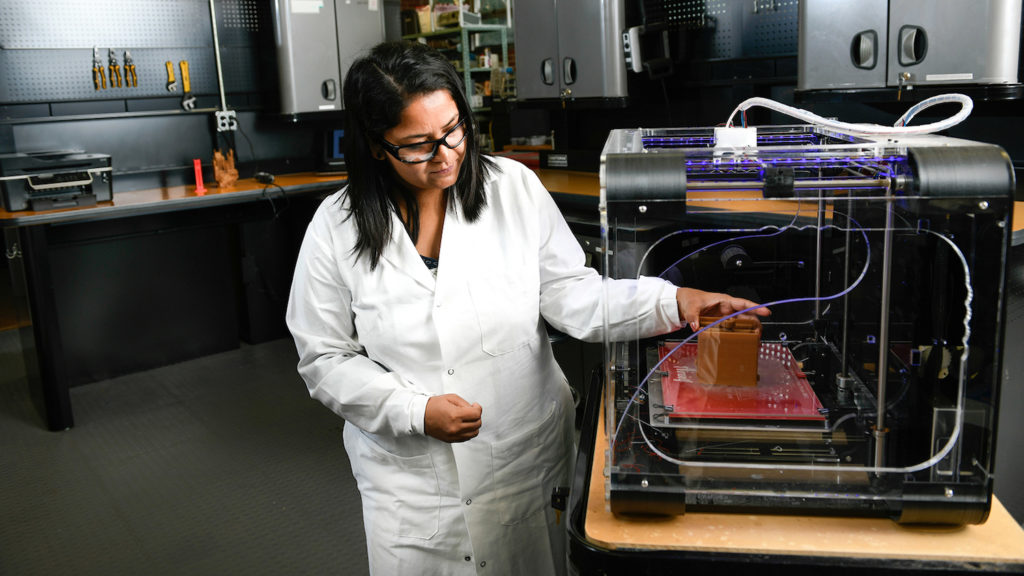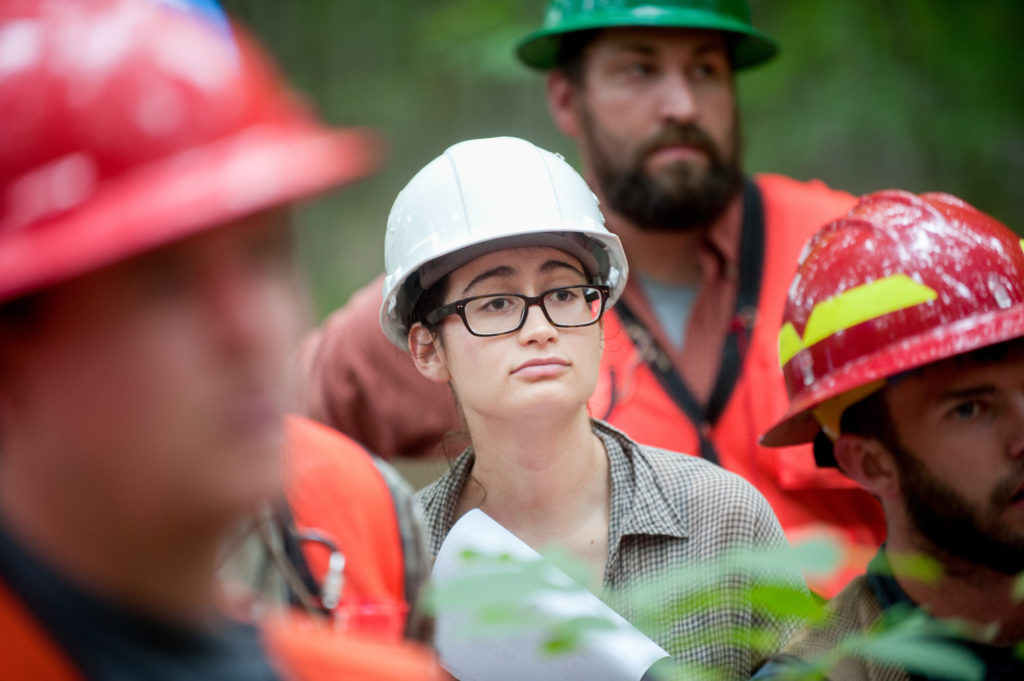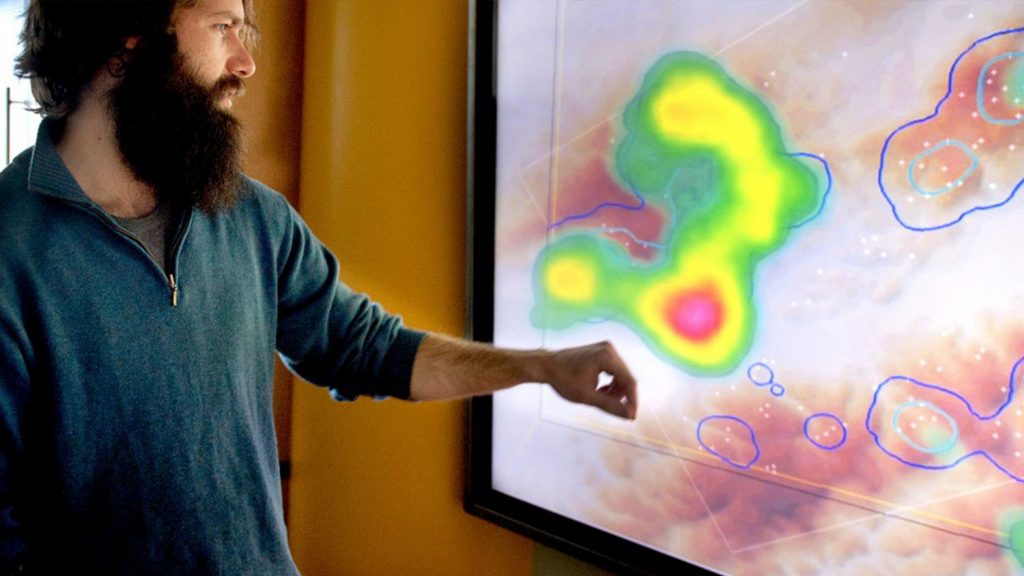Why the College of Natural Resources is Chosen for Continuing Education

At the NC State College of Natural Resources, our mission is to secure a healthier, more sustainable future for all. Across a broad array of graduate programs and extension workshops, we supply students and working professionals with the knowledge and skills they need to solve some of today’s most complex environmental challenges.
Our world-renowned faculty and staff are also committed to putting diversity and inclusion at the forefront of research and outreach. From addressing environmental justice issues to teaching cultural competency for parks and recreation professionals, the College of Natural Resources is contributing to a more equitable world. It’s no wonder we’re ranked as #1 in North Carolina and #4 in the nation for studying natural resources and conservation.
Whether you’re looking to add a master’s degree or graduate certificate to your resume, the College of Natural Resources is the perfect place for continuing your education. Check out some of our opportunities below.
Department of Forest Biomaterials

Do you want to enhance the bioeconomy, produce sustainable materials or create innovative solutions to industry challenges? If so, we recommend checking out the Department of Forest Biomaterials. Students who graduate with a degree from this department are in high demand around the world and fill key roles in everything from management to engineering to academia.
With research in fields like tissue paper and construction materials, the department offers graduate students the opportunity to work side-by-side with faculty members and industry partners as they develop sustainable products that benefit both people and the planet.
If you’re interested in science, research or engineering, you can check out the department’s graduate degree programs by clicking here. You will find a wide variety of in-person and online opportunities that will help you advance your studies or career.
The department supports NC State’s land-grant mission by providing professional development opportunities for those who want to enhance their skills or test out a new discipline through extension and outreach. Check out a few opportunities below.
- Wood Products Educational Events and Workshops
- Hands-On Workshop for Pulp and Paper Basics
- Environmental Life Cycle Analysis Hands-On Workshop
- Financial and Strategic Analysis Workshop for the Pulp and Paper and Related Industries
Department of Forestry and Environmental Resources

Graduates from the Department of Forestry and Environmental Resources go on to enjoy fulfilling careers in academia, research, policy making and industry. No matter what field students enter after graduation, they instill sustainability principles that contribute to society’s welfare through the wise use of our planet’s resources.
The Department of Forestry and Environmental Resources offers a wide range of research opportunities for graduate students. From silviculture to spatial sciences, you will work alongside faculty on innovative research projects with real-world impacts.
If you’re interested in contributing to an international center for advanced research and work related to forestry and environmental sciences, you check out the department’s graduate degree programs by clicking here. These programs include a wide range of both online and in-person learning opportunities.
The Extension Forestry program also provides continuing education opportunities for both students and working professionals. When faculty and staff aren’t working with landowners to improve forest health or providing environmental education, they host webinars that can introduce you to a new topic or provide continuing education credits. They also host numerous events each year, such as teaching female landowners to manage their forests and providing the latest research on the conservation of endangered species.
Department of Parks, Recreation and Tourism Management

Research continues to show the mental and physical health benefits of spending time outside in nature. The Department of Parks, Recreation and Tourism Management is educating future leaders to enhance the social, economic and environmental well-being of communities worldwide. Graduates of these programs go on to teach, practice or pursue research in a wide range of studies, from outdoor recreation to sport and entertainment venue management.
Whether you’re looking to earn a graduate certificate or doctoral degree, the Department of Parks, Recreation and Tourism Management offers a variety of in-person and online programs suited to fit your career goals. You can browse the department’s graduate programs by clicking here.
The Department of Parks, Recreation and Tourism Management also supports North Carolina’s residents, tourists and businesses through extension and outreach. In a state with both accessible mountains and beaches, tourism has a large impact on the economy. Our Extension Tourism professionals are equipped to help the state and global industry adapt to the changing needs of tourists, the impacts of climate change and events like COVID-19.
Check out the Extension Tourism website for upcoming events, webinars and resources for practitioners and businesses. If you’re interested in learning more about service-learning opportunities to enhance your community, see our community outreach programs.
The Center for Geospatial Analytics

Can utilizing data help solve global challenges and predict the future? That’s the mission of the Center for Geospatial Analytics, where interdisciplinary research meets real-world applications. By combining foundational geographic theory with hands-on data modeling and visualization technologies, the center is preparing the next generation of data scientists.
Graduate programs in the center range from geospatial analytics to Geographic Information System (GIS) technologies. There’s also graduate certificate programs and a minor for students enrolled in a non-GIS graduate degree. These programs are designed with the working professional in mind and online courses are available.
As the world faces more complex challenges, tools like geospatial analytics are vital to finding the best solution. If land managers want to predict how a shift in the landscape will impact local wildlife, graduates of these programs can model the changes in real-time. From protecting the world’s future food supply and marginalized communities to studying how North Carolina’s ghost forests contribute to climate change, students provide visual and realistic solutions to local and global problems.
If you want to hear from faculty and students about how they use geospatial analytics, attend a forum or discussion. Explore their most recent news to see research in action.
This post was originally published in College of Natural Resources News.
- Categories: